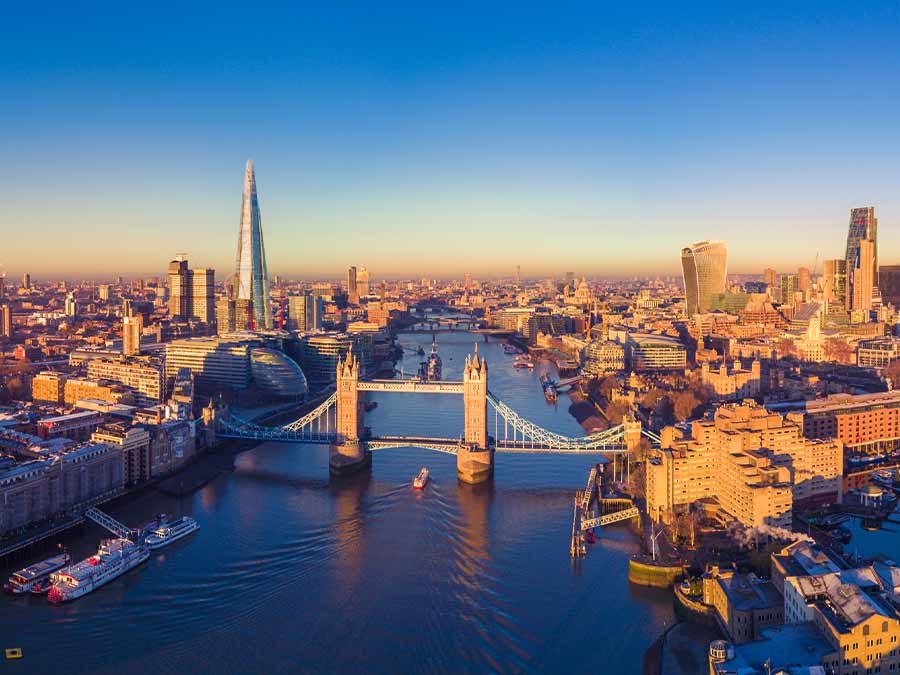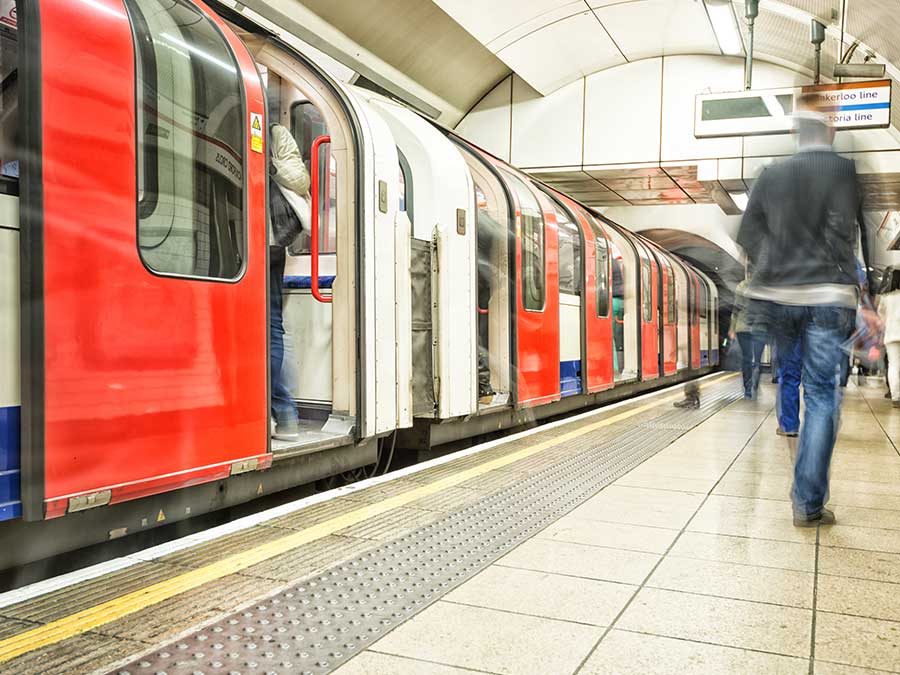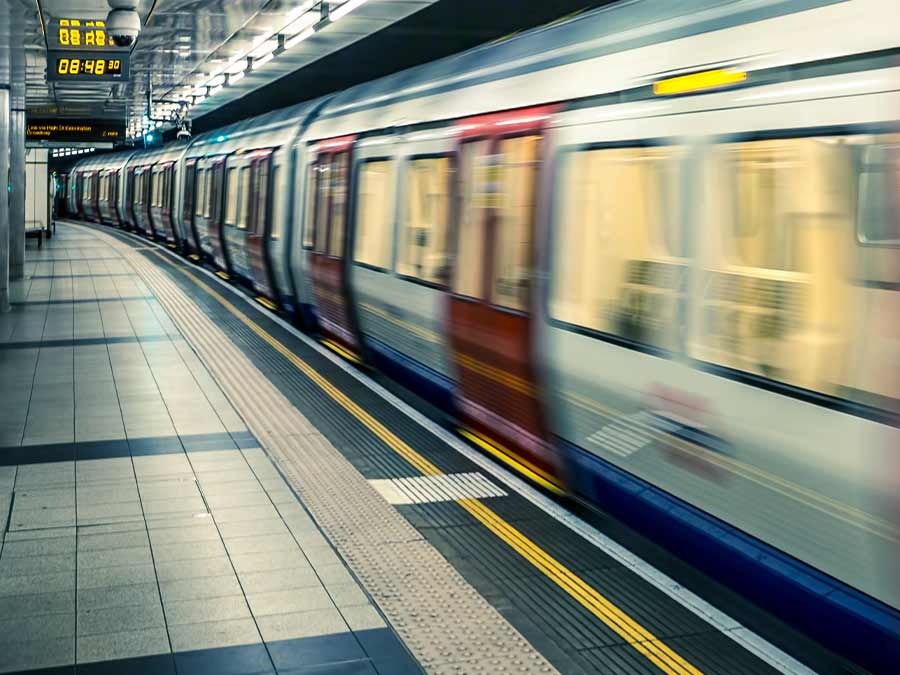
Risks and dangers in the UK
The UK is a small country with a large population. With a diverse combination of bustling towns, historical spaces and rugged countryside, the UK is likely to have something for everyone. However, this incredible variety also means there are a wide range of risks and dangers to watch out for.
Natural disasters
The beautiful and rugged landscape of the UK provides many adventures for travellers, but also poses some risks.
Being a small landmass means the UK is exposed to extreme weather and can be subjected to storms. There are many rivers, lakes and lochs in the UK which are susceptible to flooding when storms hit, especially during winter. It’s no surprise that flooding is the most common natural disaster in the UK, which can affect transport, accommodation and also the spread of sickness and viruses.
If a natural disaster occurs in the area where you’re staying, your accommodation provider should have information about the procedures in place for such events. It’s a good idea to keep up with flood warnings during your stay. Sites like The National Flood Forum and the flood warning section of the UK Government site can provide information about flooding and what to do if it occurs.
Always check the government’s international travel advisory before booking any travel plans. Once you’ve booked your flights or accommodation, it’s a good idea to buy travel insurance straight away so that you’re covered if the unexpected happens before you depart. For example, if a natural disaster results in your travel being cancelled before you set off, we may be able to refund any costs that your airline or accommodation providers can’t.
Animals and insects
The UK is generally safe when it comes to dangerous animals, especially if you plan to spend most of your time in the cities.
You can find a variety of wildlife in the UK, from the wild ponies of the New Forest to the mountain hares of the Scottish Highlands. Just remember, when it comes to wild animals, you never know how they’ll behave if they feel threatened, so it’s always best to keep your distance and give them plenty of space.
Wear appropriate footwear, such as hiking boots, when walking in one of the many national parks or rural areas, just in case you come across some of the less pleasant fauna. There are a few things to watch out for, including adders, the only poisonous snake in the UK.
Basking sharks can also be seen off the coast of Northern Ireland. They’re one of the largest species of shark, but they are not known to pose a threat to humans.
As with any trip, do some research into what animals or insects may pose a threat to you in the particular area you’re visiting, as well as related to any activities you’re doing (e.g. ocean encounters, mountain hikes).
Crime
Although generally safe to visit, crime does happen in the UK and unfortunately, tourists are often the victims. Petty theft is especially common in main centres and crowded areas like train stations or busy city streets, so keep your eyes peeled and be aware of your surroundings at all times. It also pays to blend in with the locals and avoid looking like a tourist. Things like keeping your camera in a zipped bag and knowing where you’re heading before you set off can make a big difference.
It’s easy to avoid trouble while travelling through the UK, just make sure to follow a few key tips:
- Do your research before you go and find out where any dangerous neighbourhoods may be. Ask someone you trust, like the hotel concierge, if there are any areas you should avoid.
- Scams are more common in places like train stations and tourist hotspots, so read our tips here on how to avoid common UK scams.
- Avoid all emotionally charged environments like protests or political rallies, as these can end in violence.
- Be sure to follow instructions from officials if you find yourself in a situation where police are involved.
- Bag snatching is a common crime, so remember to keep your valuables out of sight, close to you and zipped up securely.
- Avoid carrying a lot of cash on you at one time. Distribute it between the hotel safe, your wallet and a pocket so that you won’t lose it all if your bag is taken or you are pickpocketed.
Political unrest
Certain areas of the UK are less safe than others, especially areas like Belfast and Derry in Northern Ireland, where there is a history of violence between Protestants and Catholics. ‘The Troubles’ spanned many years in Northern Ireland and, although the area is peaceful and largely regarded as safe to visit now, it’s important to be sensitive to the history of the area.
The Shankill and Falls roads still bear many scars of the bombing and fighting, and you can see many patriotic military based murals. If you’re visiting these areas, avoid wearing any flags on your clothing or accessories, especially the Irish flag or the Union Jack. Pay attention to those around you and if you sense tension or unease, leave immediately. Avoid visiting Belfast and surrounding counties during marching season in June and July, as tensions are typically high and riots can occur.
Going out at night
Despite being the home to cities famous for nightlife, such as London, going out at night can be a mixed bag in the UK. There is a strong drinking culture among locals and it’s important to be aware of those around you and avoid interacting with heavily intoxicated people whenever possible.
- If you’re sampling the local nightlife on your trip, there are a few things you should keep in mind to stay safe:
- Avoid going out at night to secluded or unlit areas, especially if you’re not familiar with your surroundings. If you’re in a group, stick together and try not to become isolated.
- There are many unlicensed taxis around London and they aren’t usually legal or safe. If you’re catching a taxi home, stick to the iconic London black cabs and avoid catching cabs alone.
- Know how to get back to your accommodation at the end of your night out. If you’re in a group, take turns at staying alert and sober.
- Never leave your drink unattended, and don’t accept drinks from strangers unless you can see them being made by the barman.
- Avoid letting people know where you’re staying and be cautious of anyone who asks about your accommodation without good reason.
- Try not to talk too loudly about your plans or where you’re staying when you’re out in public. You never know who could be listening!
Local laws
There are some local laws and customs in the UK that overseas visitors might not be aware of. Here are a few basic rules to follow to avoid landing yourself on the wrong side of the law:
- The legal drinking age in the UK is 18.
- It is illegal to drink and drive in the UK, and the legal limit changes between England, Wales and Scotland. It is best to not drink at all if you’re driving.
- You can drink in public, however in London it is illegal to drink on public transport.
- Gambling is legal for people over 18.
- Some prescriptions drugs that you can buy at home may be illegal in the UK.
*For full terms and conditions, sub-limits and exclusions, pleases see the policy wording.
The content of this article is general and provided for information purposes only. It is not intended to be medical advice. Southern Cross Travel Insurance (SCTI) doesn’t guarantee or warrant the accuracy, completeness or currency of the articles.
This article may contain hyperlinks to other websites owned or operated by third parties, or references to third party products or services. SCTI isn’t responsible for, and makes no recommendation about, the content or accuracy of any third party website, or for the suitability or performance of any product or service. The inclusion of a link in this article doesn’t imply that SCTI endorses the website or third party product/service.





